Cities of Learning – Feeling a Part of a Digital Family
On 17th April 2020 Cities of Learning network partners gathered on a pop-up online meeting letting partners to see the faces behind 11 Cities and Regions of Learning (CoL) across the World:
- Vilnius City of Learning
- Lagos City of Learning
- Eastern Cape Region of Learning
- Blackpool City of Learning
- Tilburg City of Learning
- South Savo Region of Learning
- Novi Sad City of Learning
- Cagliari Metropolitan City of Learning
- Sachsen-Anhalt Region of Learning
- Ljubljana City of Learning
- Lorca City of Learning
The meeting aimed at connecting and sharing developments and good practices among partners. You can find the slides ‘CoL development cycles’ and a conference recording below:
Learning with and from each other
During the meeting Nerijus Kriaučiūnas, CEO of Badgecraft, briefly introduced the history of the CoL platform development and other global initiatives that inspired ‘Cities and Regions of Learning by Badgecraft’:
- Chicago City of Learning – example of good collaboration between coordinators and schools that integrated their systems – so activities became available for students. They use a lot of data how to map cities and use the data. Watch webinar we had with Chicago City Of Learning
- Pittsburg City of Learning. This initiative was exploring how technology can enable learning. They worked well on defining and aligning activities with competencies and using badges for recognition.
- LRNG – very good marketing, professional design targeting young people. They first introduced playlist concept (several activities connected in one pathway)
- Cities of Learning in UK – they took a strategic thinking before starting platform – exploring what makes a real strategic change and reflects real needs. The growth was not so big due to technical solutions though.
- UNESCO Global Network of Learning Cities – they are big, and gather more than 170 cities. They need to have municipal support when they apply. It was an interesting way to see how they managed this kind of cooperation.
Nerijus emphasized that these inspirational initiatives and cooperation they had with them in the previous years showed that on one hand, what we create is not so unique. On the other hand we see that as learning and growing opportunity on a global scale at the same time – that there is a need for such concept to exist.
Life Cycle of Cities and Regions of Learning
Nerijus mentioned the main technical solutions that the global.cityoflearning.eu platform provides are:
- Each activity created automatically generates and Open digital badge for a learner.
- Playlist functionality – possibility to combine several activities into one flexible learning pathway.
- ESCO skills database integration allowing to align activities with the largest database of skills and qualifications.
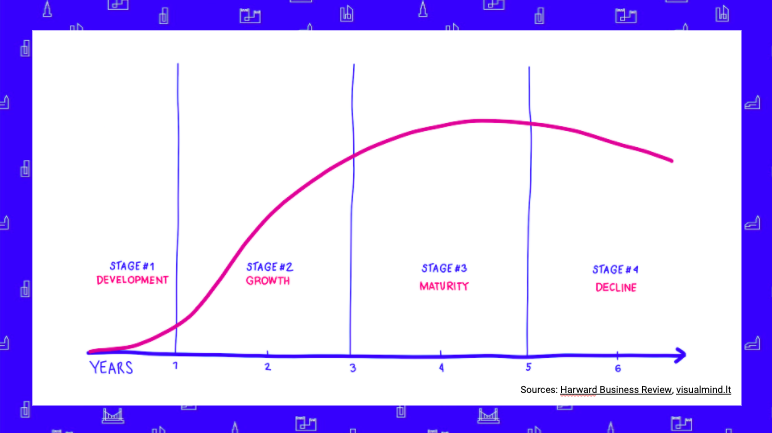
Nerijus also gave an overview on different stages of Cities of Learning platform, as a product, development. These stages reflect the aims, resources, actions and people that are crucial in each stage for the platform to go through a natural product life cycle.
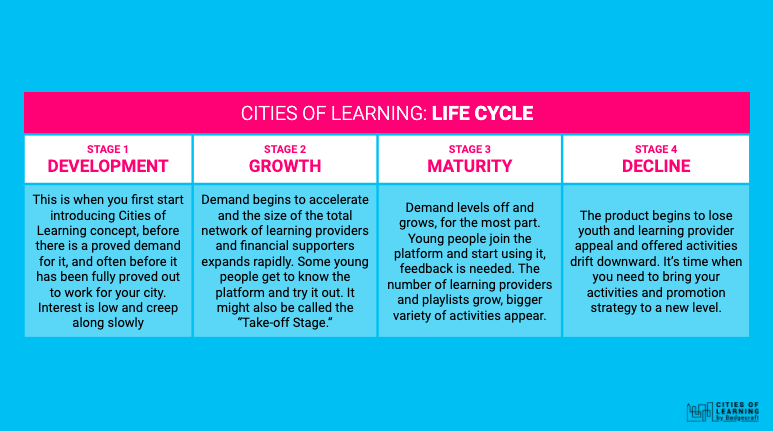
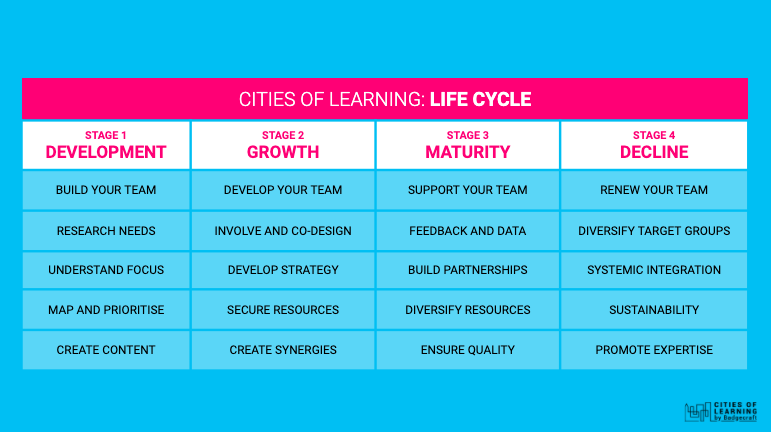
Tips and hints from network partners
After a brief overview on Cities of Learning initiative developments, partners had a chance to split into smaller teams and share questions, feedback and experiences they have.
Several ideas that came out from the discussions:
- It is not always easy to show the value of the platform to other stakeholders. Foloshade Braimoh from Nigeria shared their good practice by preparing a one-pager with COL introduction and instructions, they also mapped it up the values and how useful it is.
- Vilnius shared an experience of targeting various organisations individually, who express the need of going more digitally, or are seeking for new online tools. They contact them directly and propose easy steps to join the platform.
- Other cities raised the question on how to involve more stakeholders and also young people in co-designing this process. There is a challenge to bring understanding and highlighting the value of open Badges and the skills young people gain. They need extra motivation especially if they don’t have digital tools. There is a need to communicate more on the value of open badges. Follow the hashtag #Badges4Good for more experiences on using Open badges.
- On the other hand, other partners shared the benefits they noticed for young people to choose to learn online on CoL platform. Firstly, they don’t need to go anywhere, they can stay at home. Secondly, you can add different media, that makes learning fun. Thirdly, it can combine different types of learning (both online and offline). Young people shortly will have a chance to start co-managing the platform developments (a new KA3 project ‘Youth Co-design Cities of Learning’ is starting shortly).
- And lastly an encouragement to all the partners – start creating a lot of activities on your platform.
- Based on experience it’s good to first have a focus theme for your platform, start developing playlists on the topic and also include topic related organisations. When the platform starts to get attention you can move on with new areas and topics.
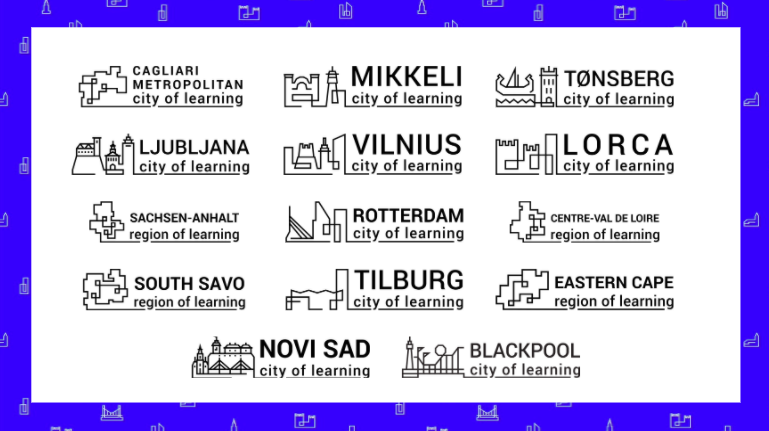
Take part in CoL network
As a closing remark, Buzz Burry from Blackpool said he enjoyed the online meeting. ‘I feel I am a part of a digital family’- he said. Would you like to join the growing global network of Cities of Learning? You can:
- Create and initiate learning activities on the global.cityoflearning.eu
- Promote Cities of Learning in your city or region and establish it! Contact us for more information by email: info@badgecraft.eu and read more in our Starter Kit
- Participate in various activities, learn and earn badges. Choose your city and explore opportunities here: citiesoflearning.eu
This webinar was delivered within the Digital Generation Youth project that aims to transfer methodologies of youth digital literacy education. This project is implemented with the support of Erasmus+ co-funding
![]()

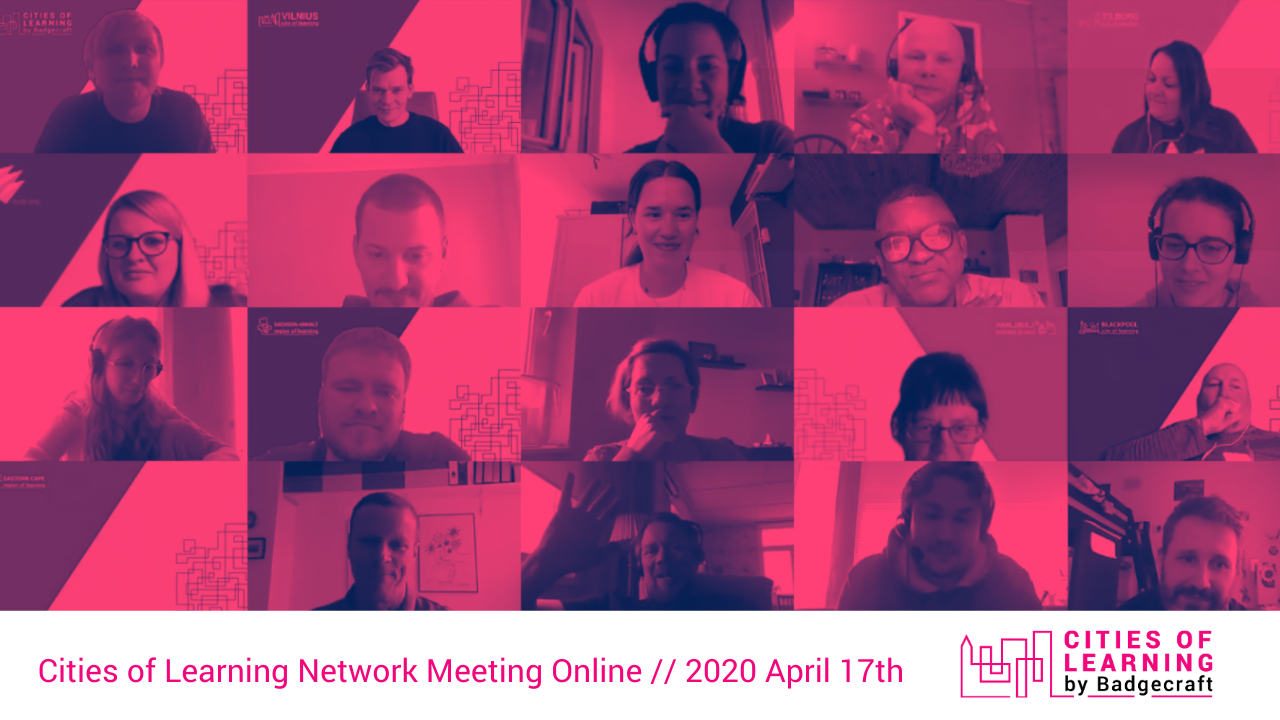

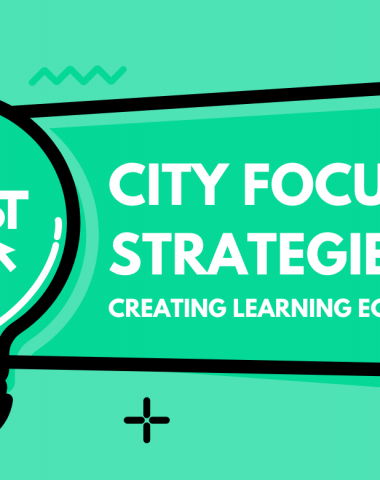

Add Review